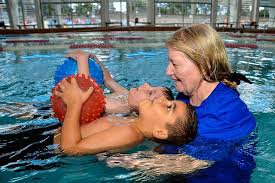
Parental involvement plays a crucial role in a child’s success and enjoyment in learning to swim. When parents actively engage in their child’s swim education, it builds confidence, reinforces safety, and supports skill development. Here’s why being involved makes a difference and how parents can support their children’s progress in the pool.
1. Builds Confidence in the Water
Parental involvement provides young swimmers with a sense of security, knowing that their parents are nearby and supportive. This assurance helps children feel more comfortable in the water, especially when starting out. For some, having a familiar face nearby reduces anxiety and encourages a more positive experience during lessons.
2. Reinforces Water Safety Skills
Parents who understand water safety principles can reinforce these practices at home or during family outings. By learning key safety skills alongside their children, parents can model safe behaviours and discuss why certain actions are important, making lessons more impactful. Parental involvement in learning about water safety also ensures that children carry these practices beyond the swim school.
3. Supports Skill Development Through Practice
When parents know what their children are learning, they can practice skills outside of lesson time. Practising simple skills like floating or kicking during family swim sessions reinforces what children learn, speeding up their progress. Engaging with their children in the water also strengthens the parent-child bond, creating positive associations with swimming.
4. Encourages Consistent Attendance and Progress
Parents who are involved tend to be more committed to regular attendance, which is essential for skill development. Consistent participation allows children to build on previous lessons without interruptions, supporting steady progress. Parents can also provide encouragement and celebrate small achievements, keeping children motivated.
5. Fosters a Positive, Encouraging Environment
When parents take an active interest in their child’s swim education, it creates a positive atmosphere around learning. Encouragement, patience, and celebrating milestones make the experience more enjoyable for children, helping them feel proud of their progress and excited about their next lesson.
Conclusion
Parental involvement is a vital component of a child’s success in learning to swim. By participating in safety practices, reinforcing skills, and fostering a supportive environment, parents contribute significantly to their child’s confidence and progress in the water. This collaborative approach creates a foundation for lifelong water safety and enjoyment.
